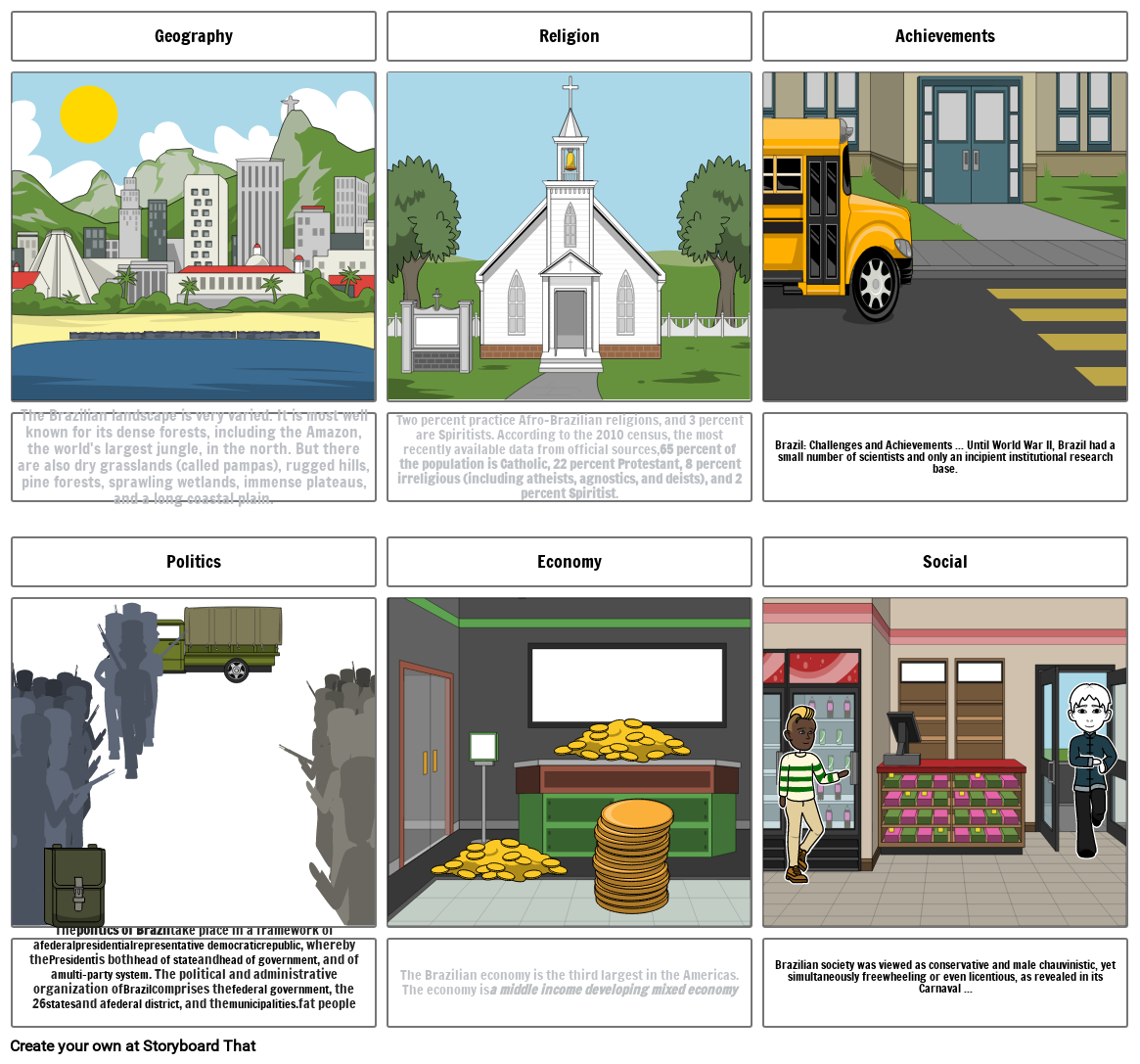Unknown Story

Storyboard Text
- Geography
- Religion
- Achievements
- The Brazilian landscape is very varied. It is most well known for its dense forests, including the Amazon, the world's largest jungle, in the north. But there are also dry grasslands (called pampas), rugged hills, pine forests, sprawling wetlands, immense plateaus, and a long coastal plain.
- Politics
- Two percent practice Afro-Brazilian religions, and 3 percent are Spiritists. According to the 2010 census, the most recently available data from official sources,65 percent of the population is Catholic, 22 percent Protestant, 8 percent irreligious (including atheists, agnostics, and deists), and 2 percent Spiritist.
- Economy
- Brazil: Challenges and Achievements ... Until World War II, Brazil had a small number of scientists and only an incipient institutional research base.
- Social
- Thepolitics of Braziltake place in a framework of afederalpresidentialrepresentative democraticrepublic, whereby thePresidentis bothhead of stateandhead of government, and of amulti-party system. The political and administrative organization ofBrazilcomprises thefederal government, the 26statesand afederal district, and themunicipalities.fat people
- The Brazilian economy is the third largest in the Americas. The economy isa middle income developing mixed economy
- Brazilian society was viewed as conservative and male chauvinistic, yet simultaneously freewheeling or even licentious, as revealed in its Carnaval ...
Over 30 Million Storyboards Created

